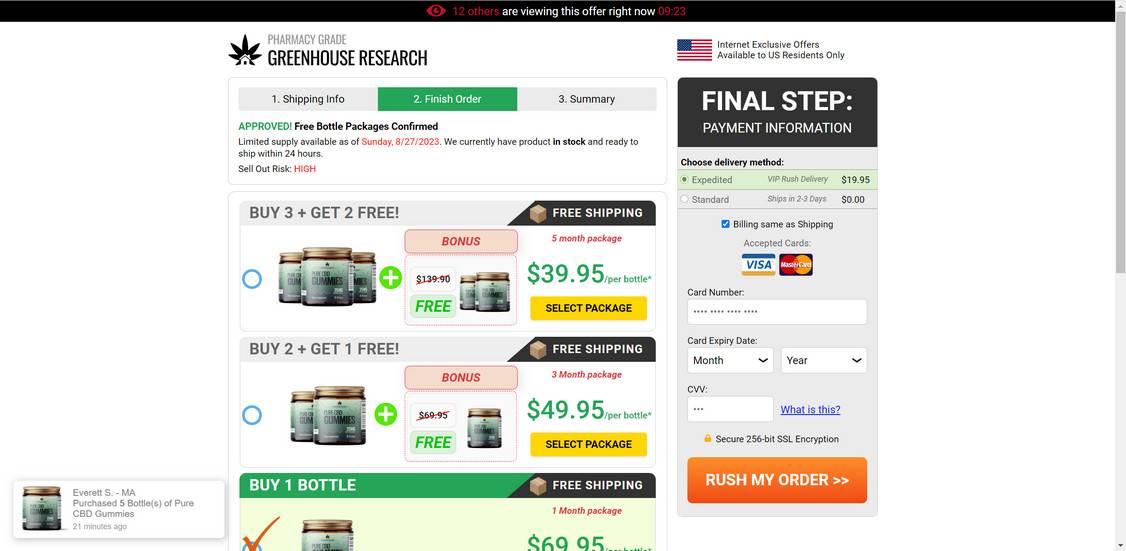A dangerous new scam is aggressively promoting Genesis Keto ACV Gummies through fake celebrity endorsements, fabricated customer reviews, and misleading claims. They use AI-generated videos and deepfakes to deceive consumers about weight loss gummies that are unlikely to work as advertised.

Scam Overview
As interest in keto diets and apple cider vinegar has grown, scammers have shifted to promoting “Genesis Keto ACV Gummies” as a shortcut to substantial weight loss.
Scammers are fabricating elaborate promotional videos and testimonials featuring AI-generated celebrity endorsements, fake customer reviews, and doctored footage to deceive consumers about weight loss gummies that do not work as advertised.
This extensive scam aims to trick potential customers into believing Genesis Keto ACV Gummies are a clinically-proven weight loss breakthrough endorsed by respected authorities and celebrities. Scammers utilize deepfake technology to create convincing videos of famous faces like Drew Barrymore, Wendy Williams, and Brooke Burke appearing to vouch for Genesis Keto ACV Gummies as a miracle solution for substantial fat burning and weight loss.
Fake customer testimonials describe losing over 50 pounds rapidly with no changes to diet or exercise after taking the gummies. In fabricated Shark Tank pitch videos, investors engage in bidding wars over Genesis Keto ACV Gummies, which they call a proven “blockbuster” weight loss pill.
In reality, all of these claims and endorsements are completely fabricated misrepresentations meant to drive sales of an unproven supplement. There is no legitimate evidence validating Genesis Keto ACV Gummies as a safe and effective weight loss aid. All the glowing reviews are AI-generated fakes.
The scammers are leveraging sophisticated tools like deepfake technology to manipulate consumer psychology around authority and social proof. Their aim is to capitalize on interest in keto diets and apple cider vinegar by making Genesis Keto ACV Gummies seem like a scientifically-validated weight loss breakthrough.
But the gummies themselves likely contain minimal effective ingredients. They have never undergone legitimate clinical testing to back the dramatic results described in the marketing. This elaborate scam works by exploiting fake celebrity endorsements and falsified reviews to trick consumers who would never purchase such an unverified supplement if its real origins were known.
The goal is to sell untested gummies at inflated prices to customers under false pretenses, using deceptive auto-billing practices and refusing refunds. Only by recognizing the multiple red flags can consumers avoid falling victim to this Genesis Keto ACV Gummies scam.
How the Scam Works
The Genesis Keto ACV gummy scam starts with deepfake videos featuring various celebrities discussing how Genesis Keto ACV Gummies helped them lose substantial weight rapidly. Drew Barrymore, Wendy Williams, Brooke Burke and other famous faces appear in edited clips raving about the gummies.
Other deceptive strategies include:
- Doctored footage impersonating Shark Tank investors bidding millions for Genesis Keto ACV Gummies, called “revolutionary” and the “next billion dollar weight loss pill.”
- Fake customer reviews and testimonials describing extreme weight loss results from taking Genesis Keto ACV gummies. Stories describe losing over 50 lbs in months with zero diet or exercise changes.
- False claims the gummies were featured on Good Morning America and Dr. Oz with rave reviews from hosts.
- Fake blog posts and news articles praising Genesis Keto ACV Gummies as clinically-proven to deliver rapid weight loss.
- Claims the gummies are proven through studies to burn fat without any adverse side effects.
- Aggressive sale tactics and limited time offers meant to create false scarcity and urgency to buy.
- Difficult refund process and outright refusal to issue refunds to dissatisfied buyers.
This onslaught of fake celebrity endorsements and testimonials aims to convince potential customers that Genesis Keto ACV Gummies are a scientifically-backed weight loss breakthrough. But in reality, there is no verifiable evidence supporting these bold claims. The goal is to exploit interest in keto and ACV to drive sales of an unproven supplement.
Recognizing the Red Flags
Here are clear signs a Genesis Keto ACV Gummies promotion is completely fabricated:
- The website seems hastily put together, unprofessional, and contains multiple typos, grammar errors, and other red flags.
- The sensational celebrity endorsements cannot be verified through any objective third-party sources.
- Claims seem wildly exaggerated, promoting gummies as an effortless cure-all for obesity.
- No access to third-party tests verifying label accuracy, purity, or safety.
- Aggressive sales tactics insist you must purchase now before something expires or supplies run out.
- No genuine customer reviews, only dubious glowing testimonials.
When in doubt, fact check questionable claims by searching for direct confirmation from independent sources. And remember, no supplement can replace proper nutrition, exercise, and lifestyle changes for real weight loss.
What to Do If You Are Scammed
If you placed an order and provided payment information, take prompt action to halt the fraud:
Contact your credit card company immediately. Ask them to reverse the charges as unauthorized due to egregious deceptive marketing. Emphasize you would never have purchased the product if the scam tactics were known.
Dispute the charges. If charges go through, quickly dispute them with your card issuer as fraudulent. Provide details on the fake endorsements and testimonials used to mislead you.
Request a chargeback. If your disputes are rejected, ask for a chargeback reversal on the grounds that the gummies vastly differ from the advertised product. Stress that the weight loss claims were greatly exaggerated and unsupported.
Cancel recurring orders. Immediately reach out to the merchant to cancel and halt any future shipments or recurring charges tied to your credit card and account.
Mark emails as spam. Doing so will prevent future scam emails about Genesis Keto ACV Gummies from reaching your inbox based on your purchase history and email address.
File complaints. Submit a scam report to the FTC detailing the deceitful marketing practices. Also consider reporting to your state attorney general as a potential consumer protection law violation.
Leave reviews. Post detailed negative reviews about being scammed on retailer sites to spread awareness and prevent others from falling victim.
Genesis Keto ACV Gummies Scam FAQs
Are the celebrity endorsements real?
No. The celebrity endorsements promoting Genesis Keto ACV Gummies are completely fabricated using deepfake technology. No actual celebrities have endorsed or promoted these gummies. Verify remarkable claims through impartial third-party sources before believing them.
Can the gummies deliver dramatic weight loss results?
There is no verifiable evidence proving Genesis Keto ACV gummies can deliver the extreme weight loss results described in the scam promotions. Responsible keto dieting and ACV offer minimal metabolism support but no fat burning miracles. Lifestyle changes remain essential.
Have the gummies really been featured on Shark Tank?
No. Scammers create fake Shark Tank pitch videos using deepfakes. No weight loss gummy product has ever actually appeared on Shark Tank or received investment offers from the cast. Verify questionable claims.
Are Genesis Keto ACV Gummies FDA approved?
No. The FDA does not approve or evaluate supplements like these gummies. Scammers may falsely suggest FDA approval to seem legitimate. Reputable supplements undergo independent third-party quality testing.
Can I get a refund if unhappy with the gummies?
You’ll likely have great difficulty getting a refund, by design. Scammers intentionally make refunds hard or impossible to get to avoid complaints. But you can dispute the charges as fraudulent if the gummies fail to provide the exaggerated weight loss promoted. Don’t fall for refund refusal excuses.
Avoid the Genesis Keto ACV Gummy Scam
The Genesis Keto ACV Gummies scam aims to exploit interest in keto diets and apple cider vinegar for easy money. But the gummies almost certainly cannot deliver the rapid, dramatic weight loss claimed in the fabricated testimonials and celebrity endorsements. Protect yourself by applying critical thinking and always verifying remarkable claims. And know healthy weight loss requires no shortcuts – proper nutrition, exercise, and determination over an extended period are key. Make informed decisions.



![Remove Truvagentibrowsepulse.com Pop-ups [Virus Removal Guide] 6 McAfee scam 4](https://malwaretips.com/blogs/wp-content/uploads/2023/08/McAfee-scam-4-290x290.jpg)